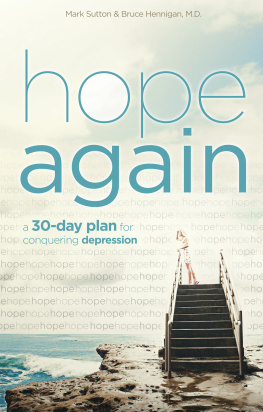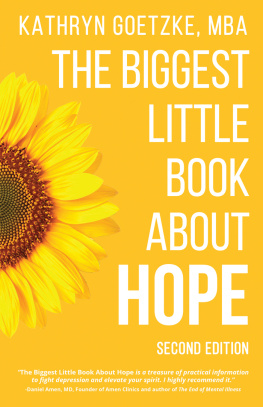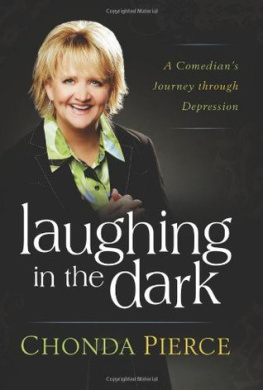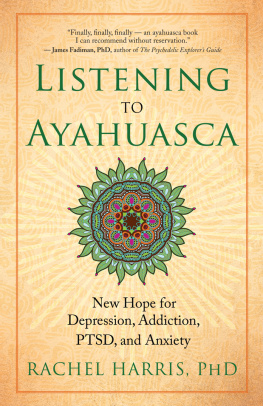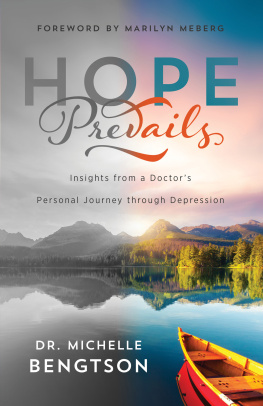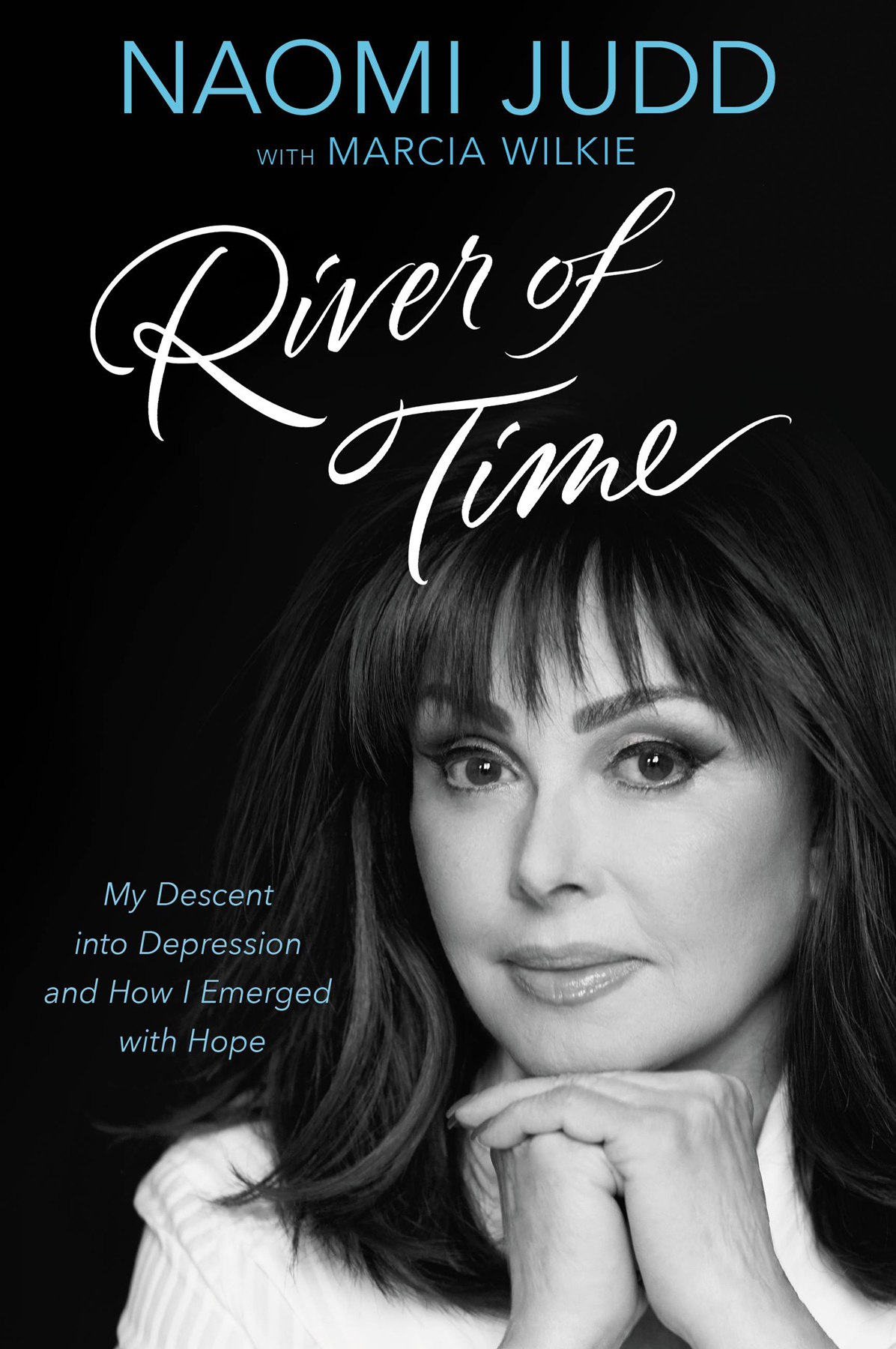Cover copyright 2016 by Hachette Book Group, Inc.
All photos are from the Authors personal collection.
Photos on pages 50 and 150 Devon Lancaster.
Hachette Book Group supports the right to free expression and the value of copyright. The purpose of copyright is to encourage writers and artists to produce the creative works that enrich our culture.
The scanning, uploading, and distribution of this book without permission is a theft of the authors intellectual property. If you would like permission to use material from the book (other than for review purposes), please contact permissions@hbgusa.com. Thank you for your support of the authors rights.
Center Street is a division of Hachette Book Group, Inc. The Center Street name and logo are trademarks of Hachette Book Group, Inc.
The publisher is not responsible for websites (or their content) that are not owned by the publisher.
The Hachette Speakers Bureau provides a wide range of authors for speaking events. To find out more, go to www.HachetteSpeakersBureau.com or call (866) 376-6591.
Library of Congress Cataloging-in-Publication Data has been applied for.
M any brilliant, amazing, talented individuals have suffered from depression, including Ludwig van Beethoven, Vincent van Gogh, Isaac Newton, Abraham Lincoln, Patty Duke, Jon Hamm, Billy Joel, Robin Williams, and Kirsten Dunst. Naomi is in good company. Of the ten professions most common among people who suffer depression, Naomi has devoted herself to two of the listed careers: entertainment, as a performer and writer, and the health care profession as an RN nurse.
When I first met Naomi, I was lecturing at a conference on complementary medicine, speaking on the connections between the brain, the mind, health, and intuition. I saw this woman, from a distance, who couldnt be overlooked. She had big red hair, full makeup, and a clothing style that very much set her apart from the usual crowd at these events. When my presentation was over, Naomi marched up to the podium and introduced herself. Later that day we had dinner. She invited me to visit her farm, and since that time, almost two decades ago, Ive been making regular visits to Tennessee to stay with Naomi at Peaceful Valley.
But Peaceful Valley hasnt always been so peaceful for Naomi, suffering a mind-body disorder like depression for more than three years, and for those of us who care about her. Yet, unquestionably, through the years when others of usincluding mehave suffered our own health problems, Naomi has always been there. She is an unbeatable combination of intelligence, knowledge, personal experience, and compassion.
During the past years she has gone through unrelenting sadness, fatigue, panic, and insomnia. Still, Naomi pushes it aside to functionmaybe even transcending the painto work, relate, love, and learn.
How is this possible? Let me try to explain.
Naomis abundant talents in music, media, and communication, as well as her natural inclination toward stellar comprehension of medical knowledge and natural intuition, may bias her brain development in one direction, one that has generated her extraordinary life and career. The downside? Her immense sensitivity to environmental, social, and emotional nuance may, unfortunately, make her prone to depression. The great behavioral neurologist Dr. Norman Geschwind talked about the pathology of superiority: When someone has an exceptional talent or skill in one part of his or her brain, another part of the brain may suffer. The most obvious examples of this are autistic savants, individuals who have an incredible capacity for attention to minutiae (left brain) but a developmental problem with social and emotional processing (right brain).
Perhaps youre thinking, Dr. Mona Lisa, use plain English, please. What are you saying? Well, the actual brain science can be simplified to a representative quote from my aunt Evie, a woman with a sixth-grade education who emigrated from Portugal. I never wanted to be like Aunt Evie, because she was uneducated, so I pursued my education to the highest achievements (PhD in neuroscience and an MD in psychiatry). She was simple folk. Though undereducated, Aunt Evie was very loving, compassionate, and intuitive, and possessed a valuable amount of common sense. Ironically, she described the connection between extreme talents and brain disorders in much the same way Dr. Geschwind did. Aunt Evie used to say, Ive never known a genius who didnt have a screw loose somewhere.
Aunt Evies proclamation could describe us all. We all have some genius capacity in one area of our brain and a problem in another. Maybe your problem is depression, like Naomis? Then one part of your healing may be to find out your unique genius that complements your uniquely sensitive, empathic, intuitive brain.
Naomi has an extremely fine-tuned brain. She was a registered nurse before beginning her music career, but definitely could have been a doctor. She devours medical literature, using a yellow highlighter and a slow, methodical method of taking notes, like a scanning electron microscope, taking in enormous amounts of scientific minutiae.
Naomi is actually ahead of her time. For more than a decade, she has told me about meeting with this noteworthy scientist or that scientist, this or that Nobel laureate, and so on. I used to wonder, how many of those scientific terms did Naomi really understand? Well, Naomi really understands those scientific terms from physics and medicine and more. One of the words that she used to toss around was epigenetic. I would think, Where did she get that word? When I was researching my latest book, I ran across the term epigenetic in a study on treating anxiety. Now in the latest scientific publications, news, and bestselling books we hear of the power of epigenetics and I am left to once again hand it to Naomi for being way ahead of her time.
Theres another reason Naomi is highly qualified to write this book. Many people at Harvard, Stanford, the Mayo Clinic, the best universities and teaching hospitals, do research in labs or study patients in clinics, and they teach us about the brain and science. We may stand in awe of their minds and their genius. Is that what will help us understand suffering of the mind? Perhaps. In the last decade, psychiatry has made major inroads into medical treatment for major mental health afflictions. But when were asking about these researchers credentialsdo they have an MD? a PhD? are they board-certified?we may forget yet a final and oh so very important credential: Have they experienced the illness they treat?



